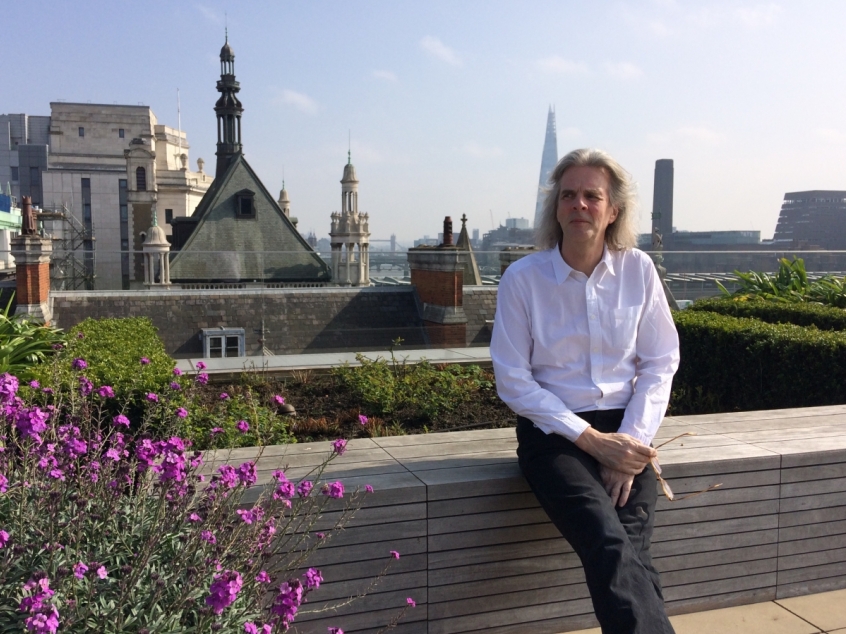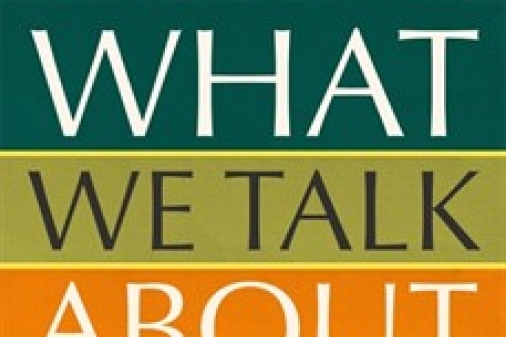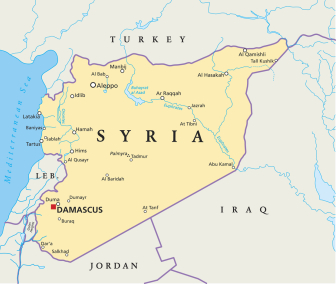Corrupt, regressive, dim-witted or just irrelevant, 'faith' doesn't always conjure positive connotations in contemporary conversation. In his new book What We Talk About When We Talk About Faith (Hodder & Stoughton, £14.99), journalist Peter Stanford courts a host of famous faces in his project to put 'faith' back on the table. He spoke to Christian Today about the awkwardness of faith, the fury of Twitter trolls and the vital need for religious dissent.
'Religion, in general, is variously regarded as: the cause of all conflict in the world; hopelessly corrupt; a regressive, paternalist, anti-women, anti-gay force; or a form of illness. These prejudices have come to exert what can at times feel like a stranglehold on debate.'
So says Stanford, whose book, a compendium of interviews the journalist has undertaken across his career, is hoped to rejuvenate the faith conversation. His subjects are wide-ranging, including TV's familiar faces like Dermot O'Leary, Delia Smith or Fern Britton, and diverse faith leaders like Desmond Tutu, George Carey or Cardinal Cormac Murphy-O'Connor. Then there are provocateur-priests, politicians and rock icons to boot.
He tells Christian Today that the book centres on 'faith' since not all his subjects profess belief in God, and 'faith', he says, suggests something a little broader than 'belief' (the book's title is a play on Raymond Carver's book What We Talk About When We Talk About Love).

But even the less religiously inclined among his interviewees seem to assent to an ambivalence about faith. For example, the lapsed Catholic novelist Wendy Perriam, told Stanford she 'wanted to believe in God but couldn't'.
See also Jimmy McGovern, creator of the 2017 hit BBC drama Broken, which centred on the life of a Catholic priest labouring for his deprived inner-city parish. The acclaimed show was 'suffused by faith', Stanford says. It 'showed the role of organised religion...in that community in all its struggles. When communities are completely let down by everyone else it is still there for them.
'But then he [McGovern] says to me "I've lost my faith. I don't believe in God anymore. It's gone."
'And you think "how can it be gone if you've written what you've written?" He also tells me how much he's yearning for that to come back...how does that work?' As for his own 'relatively doubting' Catholic faith, Stanford says: 'Obviously I've had peaks and troughs of belief or not belief in my life, but I could never imagine switching it on and off like that.'
Reflecting on his own life, Stanford sees religion as playing a decisive role, though it wasn't quite a Damascus Road experience. Rather, as he puts it, 'completely by accident' he got a job at the Catholic publication The Tablet after he 'sort-of lied' about knowing Italian.
But the job, through which he met many figures from religious communities, strengthened his own faith. Without that role, he says, 'I wonder if I would have drifted away entirely...is that me being guided in a sort of way?'
He's wary of that language since 'It's like saying I'm important and I'm not', but it is 'interesting. it makes you think...the basic point of the book is "let's talk about these things. Let's talk about them between ourselves, with other people of faith, and talk about them in a broader context."'
It's a conversation that's been muted he says, because 'we live in a self-avowedly secular society', where surveys frequently declare declining religious attendance and identification.
'I think what the secular orthodoxy has decided is that no one's interested in these things anymore and therefore they are to be dismissed,' he says.
He cites the famous remark of Alastair Campbell interrupting an interview with Tony Blair, when the then-Prime Minister was quizzed on faith: 'We don't do God'.
'He's saying it would make you unelectable, it would put the public off you to talk about God,' Stanford explains. It's a popular political mindset: he notes that he once sought to quiz vicar's daughter Teresa May on her religion, but May's faith advisor told Stanford: 'She doesn't like to talk about that, it's a private thing'.

The 'biggest muddle of all' was, Stanford posits, that Tony Blair was devout and religiously motivated, he did 'do God'.
'Faith does shape the way people operate...we do God. We just don't talk about it.'
Subsequently, Stanford is 'really suspicious of those figures [of supposed decline], I think if you asked most people of they had a "spiritual sense" or "if they felt there was more to the world than meets the eye"' a more positive response would be heard. He adds: 'one of my favourite figures is that one in six atheists believe in angels...none of it is as clear cut as people think. Faith is still a powerful force in people's lives.'
Stanford insists that this book is as much about challenging his own unease about 'faith' as that of others. 'People say "oh you're very religious", and I say "oh no not really. Moving on..." and that's really bad. So there's a self-castigating aspect to this book. We just need to not be so embarrassed.'
Of course, a public reticence to talk about God may also be, as Michael Gove told Stanford, because leaders are wary of declaring a divine mandate for their positions. And of course, great wrongs have been done in the name of faith – embarrassment isn't always inappropriate.
'I'm very embarrassed that I'm a member of a church where abuse has taken place and been covered up, where same sex relationships are condemned,' Stanford says.
'[It's] appalling and not in my name, but it doesn't mean that I don't have to talk about faith then, and that I can't talk about the good things.'
Such 'good things' include the capacity of faith to inspire works of charity and social justice – advocates of which are prominent in his book. He puts it bluntly: 'Take me to a foodbank that's been set up by the humanist society.'
What does the journalist make of ever-advancing social media and its impact on faith conversations? Stanford won't be found on Twitter, but says that his other experiences of social media, such as internet comments sections, 'have not been wholly happy'.
He recounts writing an obituary for Christine Keeler, the model involved in the Cold War-era Profumo affair.

In his 'incredibly nice' obituary for The Guardian, he merely described Keeler as the 'biggest victim of all' in the scandal.
'For some reason', he says, he decided to read the comments below, 'and they were just vitriolic about me, they said: "typical Catholic, prim, moralistic judgements, people like this shouldn't be able to say anything at all..."'
When these and similar – or worse – comments were reported to the site moderator, it was apparently remarked that the online abuse was 'fine with Catholics really'.
Remarkably, Stanford even got abuse for writing something as innocuous as The Telegraph's Sunday weather column.
'I just got all this abuse from people saying "we just looked this man up. What does he do, does he go outside and pray and wave his hands in the air to God to work out what the weather's like?" And you think "No, I just look on the Met Office site like everyone else!"
Frequently the dialogue online, he says, is simply 'not a conversation. They're not listening to what you say.'
But division isn't the exclusive preserve of social media, as this books documents well, it's been prevalent throughout the church. It's not often clear that the 'conversations' that happen between the polarised wings of the church are taking it any closer to unity or good disagreement. In light of the conversations he's been part of, does Stanford have hope for the church?
Belonging and shared bonds are essential for religious unity, he says, but 'there's a balance there between community but not letting community ossify.'
'Communities die', Stanford says, when they become exclusive clubs where disagreement is banned. Hence he's tried to host the voices of unorthodox 'outsiders' in his book.
'Religious institutions have only ever moved forward through dissent. So let's give a voice to the dissenters.'
He recalls that after publishing an interview with controversial Bishop Christine Mayr-Lumetzberger, he received a letter from a cardinal saying: 'you shouldn't be telling people what she says.'
'Why shouldn't we?' the ever-animated Stanford remarks. 'Let them make their own mind up. That gives me hope, that we can do that, no one's stopping us. It's not like Putin's Russia.'
What We Talk About When We Talk About Faith is on sale now. You can read Christian Today's review of the book here. You can follow @JosephHartropp on Twitter







